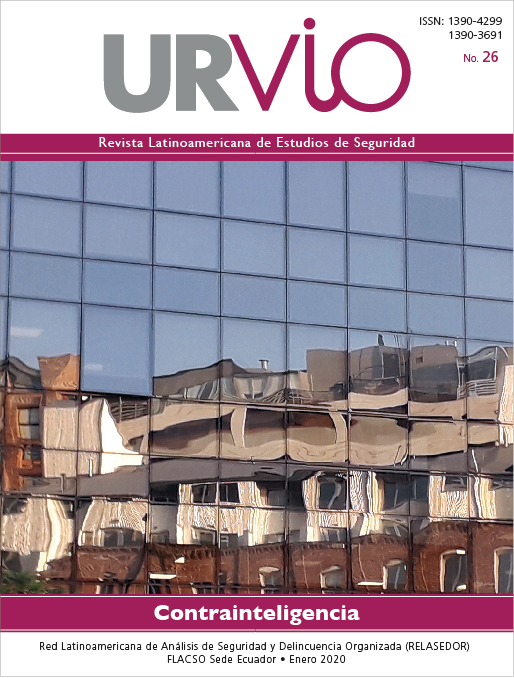No Place for Military Counterintelligence in Argentina: Analysis of a Possible Legal Gap
Main Article Content
Abstract
The legislation of Argentina establishes four activities for the National Intelligence System: national intelligence, counterintelligence, criminal intelligence and, at least, military-strategic intelligence. The Direction on National Military-Strategic Intelligence (DINIEM), under the Ministry of Defense, produces the military-strategic intelligence, while the Federal Intelligence Agency produces counterintelligence. The aim of this paper is to study a legal problem that has not been addressed in literature: the lack of regulation on military counterintelligence, which has no place in the national legislation. The executive branch has decided that the DINIEM carries out at least part of the military counterintelligence activities. This decision enables a military office to carry out an intelligence task inside the State, something that stresses the legal limits of the operations of Armed Forces. The methodology of legal science is used to analyze the problem, but taking into account the historical and political context of the legislation. It is concluded that the legislation allows the executive branch to decide discretionally about the appointed office to develop military counterintelligence.
Downloads
Article Details

Urvio, Revista Latinoamericana de Estudios de Seguridad, operates under Creative Commons Attribution-No Derivative Work 3.0 unported (CC BY-ND 3.0).
The authors who publish in Urvio accept these terms:
You are free to share / copy and redistribute the material in any medium or format for any purpose, including commercial. Therefore, authors retain the copyright and cede to the journal the right of the first publication (CC by-ND 3.0), which allows third parties the redistribution, commercial or noncommercial, of what is published as long as the article circulates without changes.
The following conditions exist for the authors:
Recognition - you must recognize the authorship, provide a link to the license and indicate whether changes have been made. You can do this in any way reasonable, but not in a way that suggest that has the support of the licensor or receives it by the use he makes.
Without Derivative Work – If you remixed, transform or create a work from the original material, you cannot broadcast the modified material.
For more details, visit the page of Creative Commons (CC).






